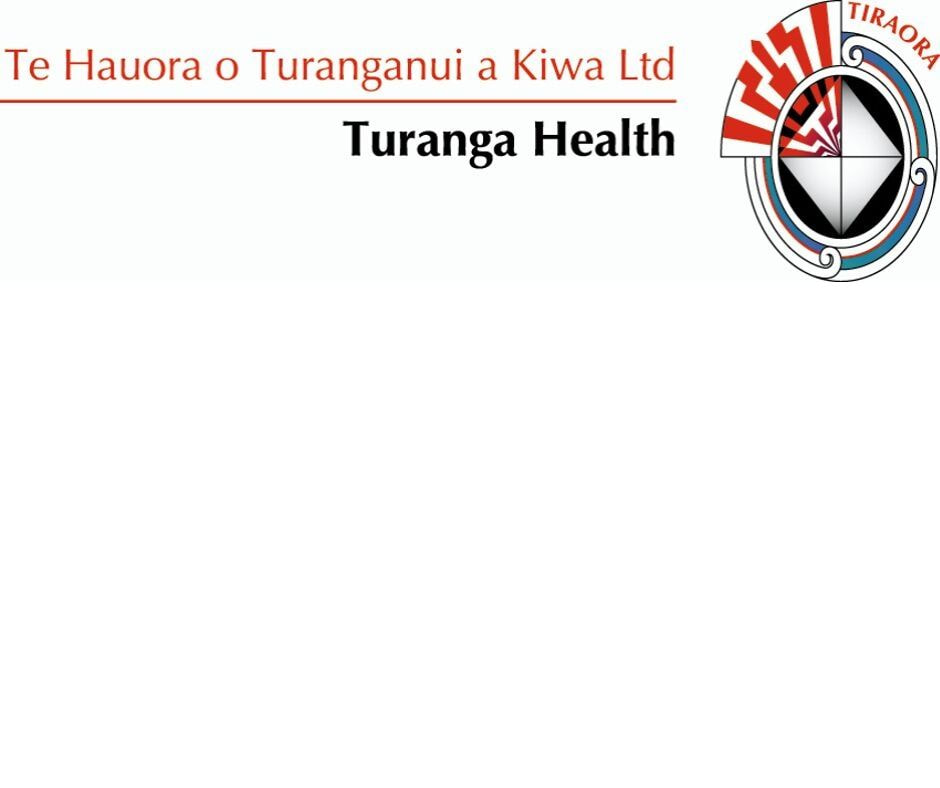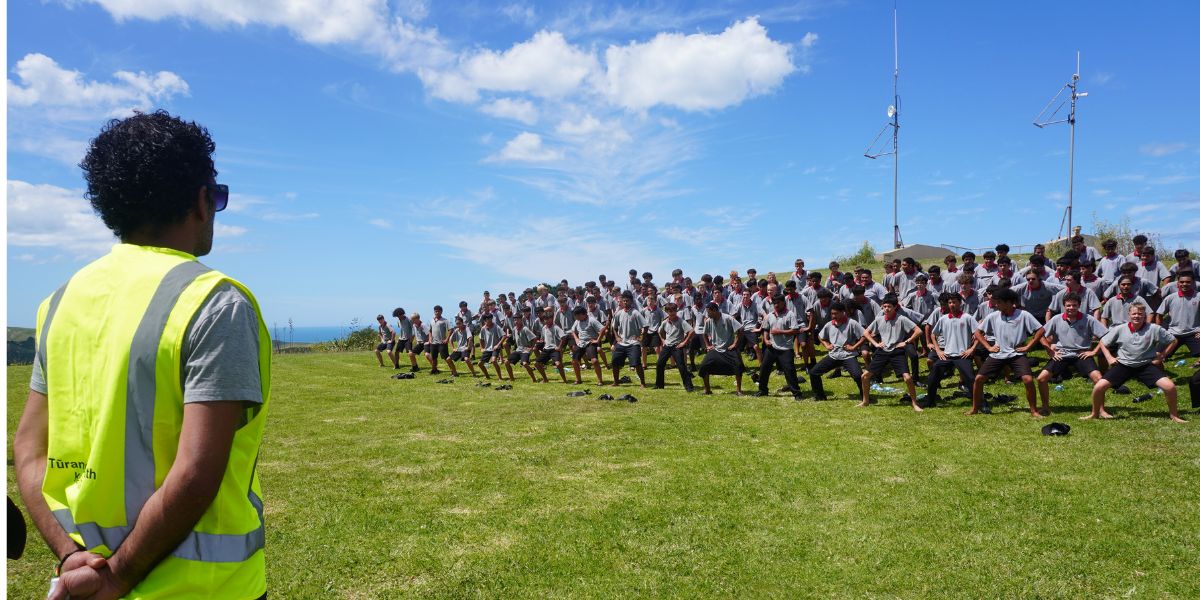 MORE local students have been introduced to Gisborne’s complex and layered history now that Turanga Health’s heritage trails have been adopted by Gisborne Boys’ High School. This month around 160 GBHS Year 10 students took part in the year's first Heritage Trail walk giving tāne an up-close-and-personal insight into the history that surrounds them. The trails dovetail into our school’s te reo Māori and physical education department curriculum, says Gisborne Boys’ High School principal Tom Cairns. “It covers off our history and our tikanga, and all the while, the boys are active.” Turanga Health’s Heritage Trails are a walking or running series that combines fitness with local historic treasures. Students can cover around two to four kilometers during each hikoi so it’s a unique opportunity for participants to be active and connect to history at the same time. There are three heritage trails exploring local history: Turanganui River and Titirangi; Oneroa Walkway and seafront; and Taruheru River. The trails combine Māori and Pakeha history traversing stories around early navigators, those who visited, those who returned, and those who made this place home. Stories of the original Māori ancestors Kiwa and Pāoa are combined with the history of meeting houses, Cook’s arrival, and European settlement. Mr Cairns says the heritage trails also fit into the school’s Tu Tāne growing good men programme. “Knowing who you are, where you’re from, and discovering shared histories amongst communities, is important for young men.” Turanga Health has used heritage trails for several years to engage rangatahi in physical activity and as a way of helping them learn local history. “Students can find themselves standing next to and looking upon sites of significance,” says Turanga Health chief executive Reweti Ropiha. “They learn, and that mātauranga can be translated into their daily connections and life.” Rongowhakaata historian and heritage consultant Jody Wyllie created the heritage trails for Turanga Health. Mr Wyllie is a Treaty of Waitangi negotiator and researcher. He’s spent hours passing on his years of historical research to Turanga Health kaiāwhina who lead the guided walks. The Turanga Health trail guides are Hotorene Brown, Avenir Maurirere, Richard Brown, Luke Bradley, Lewis Ria, Haydn Pomana and Waldo Horomia. They have support from other staff who help with transport and refreshments.
0 Comments
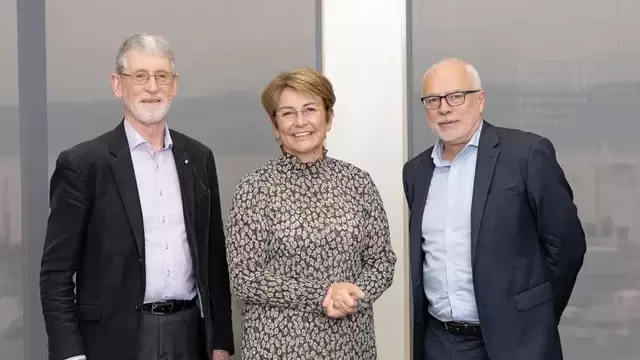 PARTICIPATING in a Government inquiry can be daunting but it’s a privilege and our duty, says Turanga Health researcher Dr Shirley Keown. “There seems little doubt that inquiries into disaster events in Aotearoa have generally been useful and so it was important that we take up the offer of a seat at that table.” Dr Keown represented Turanga Health at the Covid-19 Lessons Learned Commission of Inquiry in Tairāwhiti this month. Chief executive Reweti Ropiha says Dr Keown’s professional presentation gained the respect of participants. “Shirley articulated Turanga Health’s wealth of knowledge about vaccination settings, service mobility and equity, and the priority groups we targeted, in a thoughtful, robust way. It was well-received,” he says. During the pandemic, Turanga Health led the way in community vaccination, hosting 185 drive-through and 161 static vaccination clinics between May 2021 and October 2022. Of all Māori vaccinated in the region, Turanga Health was responsible for immunising nearly a quarter of the whānau. “Given this involvement, and our kaupapa, which was to engage and connect with Māori in a way that embodied the whānau experience, it was important we share our learnings during the inquiry,” says Dr Keown. “Getting to do the mahi we wanted to, wasn’t always straight forward at the time, and so this was a chance to reflect and share our own wisdom and information.” A Royal Commission inquiry is the highest inquiry available in New Zealand. They take an in depth look into any matter of public importance or concern to the Government of the day. There are currently three underway in this country: Covid-19 Lessons Learned; Historical Abuse in State Care and in the Care of Faith-Based Institutions; and the Response to the North Island Severe Weather Events. The Covid-19 inquiry will help New Zealanders and the Government be prepared as possible for when something like Covid-19 next hits. Dr Keown and iwi representatives presented feedback to the three Covid-19 inquiry commissioners: epidemiologist Professor Tony Blakely, former member of parliament Hekia Parata, and economist John Whitehead. While some Royal Commission inquiries can be done very formally with official hearings similar to a court process, this one is being managed more informally with commissioners travelling up and down the country to extract out the lessons. Prof Blakely says everyone in New Zealand, and indeed many Kiwis living overseas, was impacted by Covid-19, and it’s for this reason the inquiry’s scope is broad. “There is a wealth of information we have already begun to analyse, which will help inform the inquiry. But just as important is hearing from the many organisations, communities, and individuals across Aotearoa about their involvement, experiences and insights of the pandemic.” During the meeting the commissioners learned more about Turanga Health’s timing, flexibility, and scale of its vaccination campaign. For example, Turanga Health was the first iwi health provider to train kaiāwhina vaccinators as part of the urgent and necessary workforce, thereby ensuring whānau faces in whānau spaces. As well as sharing Turanga Health’s lessons learned, Dr Keown says there was a chance to talk about future challenges such as raising childhood immunisation rates, and the need for iwi to be involved at the co-decision time for public health initiatives, and not just with co-design. “It’s important that we take all these learnings and don’t let people and funders fall back into old systems. As tangata whenua our notion was to serve the community. We had the audacity to be audacious during the pandemic and think outside the box. The unfortunate reality is that there will be another pandemic and we bring a well of experience to managing in that space.” 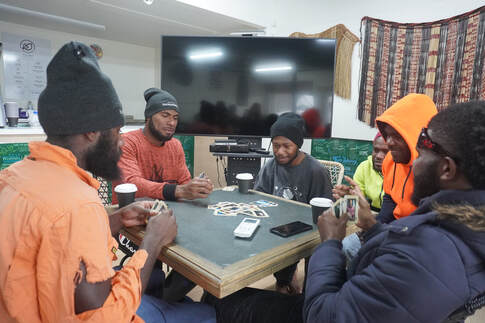 After their vulnerabilities were exposed during Cyclone Gabrielle, Pasifika men working in the region’s orchards, vineyards, and crops, are better connected to welfare and health services thanks to Turanga Health. Turanga Health continues to support Recognised Seasonal Employer (RSE) workers nine months on from Cyclone Gabrielle, says chief executive Reweti Ropiha. “Being able to give a stable and trusted voice to this vulnerable community is one of the good things to come out of the terrible weather events of 2023.” The region’s RSE workers, who are all male, live mainly in shared or communal accommodation. They come from Pacific Islands such as Samoa, Fiji, Tuvalu, Kiribati, Vanuatu, Tonga, and the Solomon Islands. When Cyclone Gabrielle hit, they had the same needs as many people: food, water, cash, and communications, but very few people to help them. They also required winter clothes and bedding, and recreational items. Mr Ropiha says Turanga Health stepped up and activated a response to meet the emergency needs of 161 workers. “We used our existing relationships with the companies who employ them and funnelled staff and supplies quickly out there.” Turanga Health staff also worked with the Pasifika Medical Association Group, which flew in Pasifika doctors and a physiotherapist, so RSE workers could receive medical check-ups. The checks happened at RSE workers’ accommodation, and at Turanga Health’s Manawaru hub in Elgin. Staff from Te Whatu Ora and the New Zealand Police were also recovery partners. Now, nine months on, Turanga Health continues to work with the workers and the wider Pasifika community, focusing on improved access to dental care, health services, and opportunities for gathering as a community. “We’ve also carried out research into the region’s Pasifika community and are currently using this data to address other identified gaps in health and welfare services.” Mr Ropiha tabled Turanga Health’s 2023 annual report during the iwi health organisation’s annual general meeting this week, and emphasised “it was a year of two halves”. “The first six months between July and December 2022, gave us a chance to reignite services that had been impacted by the pandemic, and consolidate what we had learned in the vaccination space.” But the game changed in the second week of February 2023 when the cyclone hit. “Our mahi was like that of our Covid-19 response. We were able to pivot quickly.” In the first four days after Cyclone Gabrielle, Turanga Health: contacted 816 whānau and offered support; cooked 1,000 meals; delivered 230 kai parcels; made 50 medication deliveries; and transported 56 whānau to a preferred location or to healthcare. In collaboration with other organisations, it helped relocate two generators, 8 starlinks, and one atm around the region. Then, just weeks later, the organisation was back into hosting its large drive-through whānau vaccination events offering Covid-19, influenza, childhood and hapū māmā vaccinations in one place. During one day alone in April, Turanga Health administered nearly 10 percent of the country’s total Covid booster immunisations in just four hours. “Not bad for a small iwi health organisation in a region battered just weeks before.” Read the annual report. 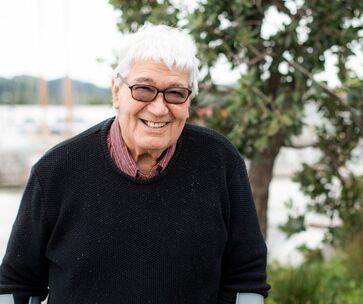 Whakahawera Rere Kite Pakanga Kerr, a big man who leaves behind a massive legacy in iwi health, passed away on Sunday 21 May, 2023, aged 82. Known as Libby – after his uncle was wounded in Libya on the day of his birth in 1941 – a quarter of a century of service made him a cherished member of Turanga Health. Turanga Health is an iwi health provider and general practice with 95 staff including one GP, 19 nurses, and 58 kaiāwhina, including many who can vaccinate. Staff come from many walks of life and backgrounds, helping manage the health care needs of whānau in their own homes or community settings. Turanga Health was central to mobilising services and vaccinating this region’s population during the Covid-19 pandemic. Turanga Health chief executive Reweti Ropiha says Libby made his mark from when he started in 1999. He was someone who could work with older males and walk their health journey alongside them. Libby became a confidant and gave tāne confidence. “His life experiences ensured he had a lens on the world that informed his work for Turanga Health, and in turn, Turanga Health’s approach for this region.” As well as serving as kaumātua, he also spent six years overseeing the Vanessa Lowndes Centre for whānau with physical and or mental health issues, and was a mentor for a young Reweti Ropiha. He worked for the organisation until this year. Libby, Ngāpuhi, Ngāti Porou, Rongowhakaata, Ngai Tāmanuhiri, Te Aitanga a Māhaki, Tūhoe, spent his early work life contributing to the region’s primary industries. He plucked tobacco leaves, loaded maize cribs, picked fruit, and butchered meat in the freezing works. In 1985 he had become a security guard at New Zealand's newest health facility, Gisborne Hospital, where he saw things he says, “were both good and bad”. On the “good” side, he enjoyed spending time in Ward 11, talking and interacting with patients. On the “bad”, he often felt tangata whaiora (people seeking health) were not treated with the care and consideration they deserved. With that as his driving force, Libby's redundancy some years later was turned into a positive when he used his experiences to work with the Health and Disability Commission. Then, through Turanga Health, Libby committed himself to doing what was right in Turanganui-a-Kiwa. Whether it be a phone call, kanohi ki te kanohi contact, or something more subtle, Libby called upon an extended breadth of relationships to help Turanga Health navigate the early days of delivering its services. Reweti says Libby’s drive to help whānau intensified during times of trial. Be it earthquakes, floods, pandemics, or power outages, Libby demanded that whānau continue to be supported. “There was no compromise on this. He would say we can do it in real time, open the doors as quickly as possible.” Turanga Health’s whānau approach to health care owes a lot to Libby. When designing new health programmes, population health kaiwhakahaere Dallas Poi says Libby helped her engage with a wide variety of community leaders. “He was there as a backstop, a guide, and gave me insights on who I needed to go to.” He always pushed her to broaden the organisation’s horizons. Why stop at that marae and that school? “As the years went by, I further understood the importance of Papa Libby and the role he played.” Libby’s Turanga Health office was small but central. His beloved country music would blast loudly from the tiny room, and despite possessing no real singing ability, he would belt out Merle Haggard tunes while sipping coffee from a huge mug. Nearby administrative staff, including Dallas, would get hōhā (exasperated), but his cheeky smile would always win them over. In the last few years Dallas and Libby shared a secret supply of biscuits in his office drawer. Dallas would sneak biscuits when he wasn’t there. Later, with mock surprise he would complain to Dallas that a kiore (rat) had been stealing the stash. Radio announcer and Turanga Health instructor Walter ‘The Wiz’ Walsh met Libby when he was a Te Runanga o Turanganui a Kiwa trustee overseeing iwi radio station Te Kakano. Later, when he was a Turanga FM breakfast announcer, Walter would take off-air song requests from Libby. “We nicknamed him Maunga Teitei (high mountain) so nobody would know it was him jumping the queue.” Libby never backed away from responsibility. He loved his whakapapa, was a unionist and a retired Justice of the Peace. He pushed for Turanga Health staff to study waiata and insisted on having iwi taonga in the office so staff remembered who their mahi was for. He wasn’t afraid to speak his mind and if he was frustrated the odd bit of kangakanga (cussing) could slip out. Throughout the years Libby was a passionate family man . . . he and his wife of more than 55 years, Mereaira, have eight children, 12 grandchildren, and a growing number of great-grandchildren. His Lytton Rd whare is a key hub for whānau. As long as you didn’t disturb him while he was watching Emmerdale Farm, he loved nothing more than a cup of tea and a natter. As his mobility was compromised in recent years, his granddaughter’s husband, Henry Lamont, drove Libby to and from Turanga Health’s Derby St office. Reweti says right up until his last few weeks Libby continued to be a mentor. Libby pushed him and Turanga Health to have the agility, guile, and wisdom of an eel from Lake Repongaere. “It’s because of this advice that Turanga Health has for years been able to put faces into Turanga spaces and support whānau wherever they may be. Libby wasn’t interested in being associated with a Waituhi garden snail.” ends 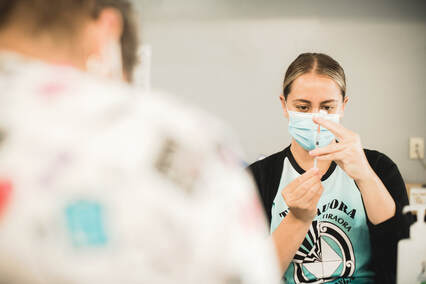 TURANGA Health continues to receive recognition for its Covid-19 response by being included in two prominent nationwide studies. The te Tairāwhiti iwi health provider was innovative and agile during the first two years of its Covid-19 response creating whānau-friendly vaccination settings leading to increased numbers of iwi immunised. Between 2020 and 2022 Turanga Health was “punching above its weight” says chief executive Reweti Ropiha. While the health sector, other regional providers, and the Government lacked confidence to work at pace, Turanga Health shaped and designed services that made an impact. In July 2021 just 11,230 eligible people in Tairāwhiti had received their first dose of the vaccine, including 3799 Māori. By the end of June 2022 34,339 eligible people had received their first dose including 17,073 Māori. At the time former Te Whatu Ora Tairāwhiti district director Jim Green said it was “a remarkable turnaround.” Since the pandemic, Covid-19 response research has moved swiftly. When there was a chance to be involved, Turanga Health felt it had an obligation to do so. “It was important that Turanga Health put up its hand and say ‘yes’ to projects like this so iwi health providers are in a stronger position to do more for Māori in the future,” says Mr Ropiha. Turanga Health’s work has been included in a Ministry of Health-funded study looking into the ongoing impacts of Covid-19 and future pandemic responses. Twenty-three studies form part of the national project, delving into topics such as aged care residents, Pacific peoples, digital contact tracing, and mandates. For its part, Turanga Health is looking at the response of its staff and services between 2020 and 2022, what worked well, and what impact that had on equity of services for Māori. The local study is called Tūranga Tangata Rite. The local study includes an exhaustive review of all the work carried out between 2020 and 2022, as well as interviews, surveys, and wananga with kaimahi and stakeholders. Public feedback collected in real time as ‘whanau voice’ will also be collated to help recapture the experiences of service users. “Tūranga Tangata Rite will uncover what equity of access for Māori should look like,” says Mr Ropiha. Turanga Health’s approach was about flexibility and hospitality, or Turanga faces in Turanga spaces. “We now have an incentive to share any available tools and knowledge to ensure that a disruption like Covid has the smallest impact possible. We’re not saying we had all the solutions, but this pandemic has taught us that we were much more relevant than we thought.” The second project Turanga Health is involved in looks at how Māori health providers can measure the impact and social value of their activities, and whether the tool known as Social Return on Investment might be the way to do it. This study is funded by Health Research Council of New Zealand. “Making a difference to iwi health outcomes is the main objective of these research projects now.” 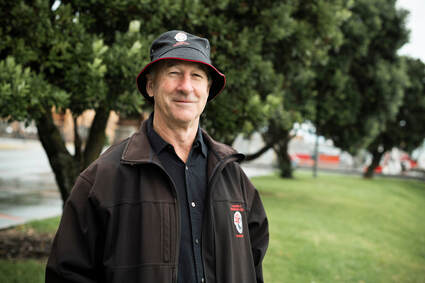 IN the 2000’s gym owner and instructor Chris Miller dedicated two hours each day to work alongside Vanessa Lowndes Centre (VLC) whānau. He loved it - but never dreamed it would become his life’s work. This year, Chris was acknowledged for his 20 years of commitment as a beloved Vanessa VLC tutor. He cherishes the friendships and memories he’s made with staff and whānau and says, “there’s something about this job that makes you want to come back each day and help them out.” Chris grew up on a Matawai farm then worked as a mechanic at Ford Motors. He went on to own automotive repair businesses and then Gisborne City Gym. While a gym owner (and later a gym instructor with new owners YMCA) he taught whānau engineering skills at VLC. “A friend asked me, and because the gym could be quiet in the afternoons, it was something constructive for me to do,” remembers Chris. VLC builds confidence and prepares people living with mental, physical, or intellectual disabilities for employment. Chris helped whānau fabricate handrails, fix broken appliances, and make a steel trailer cover. Over time, Chris’s small job evolved, and he left the YMCA to work full-time at VLC. Chris is a natural mentor and coach. He works outside as much as he can, taking the lead in community gardening projects, driving the VLC bus to events and activities, and helping whānau exercise. The whānau delights and inspires him every day. Chris was thrilled when former member Jess Kirwan earned her driver’s licence. “I gave her lessons, but her eventual success – that was all her.” On a walk recently, BJ Johnston announced he could see Tuamoto Island. Chris was chuffed to see whānau taking on board the landmarks and lessons he'd been sharing. Over the years, Chris has become a trusted confidant for some of the group. Whānau bring him questions and he does his best to support them with practical solutions and good life advice. “Sometimes I feel like a counsellor as people talk to me about their trials and tribulations.” Ricky Brooking, Ngāti Porou, 44, has been coming to the VLC for over 20 years, and says Chris is an all-round good guy. “He’s always good to people, always supportive, he’s just a wicked person. He comes with cool stuff to do so we never know where we will end up.” Turanga Health chief executive Reweti Ropiha says Chris has a heart of gold. “He’s brought his own experiences to the role and that’s helped accelerate whānau independence and get them out into the big wide world.” Chris is a Turanga Health handyman and assists with the vehicle fleet. But it’s his work with whānau he’s most passionate about. “I think the programme we run is bloody awesome and I know parents and caregivers value it. They know their family members are safe and that they are well-looked after and supported. It’s a privilege to be part of it.” Outside of work Chris, now 65, is a talented sportsman. He played club rugby for Marist and Rangatira, toured with the New Zealand Marist Colts in the 1970’s, and played for Poverty Bay Under 21s. He was Waerenga-A-Hika Squash Club champion three times and served 19 years on its committee, 14 of them as president. Ten years ago, Chris was made a Life Member. He’s also successfully dabbled in multisport, golf, harriers, and cycling. Chris and partner Raewyn are parents to five grown children and nine grandchildren – a couple of whom he helps coach in touch rugby. Chris still fixes vehicles and can often be found four-wheel driving or at the speedway. 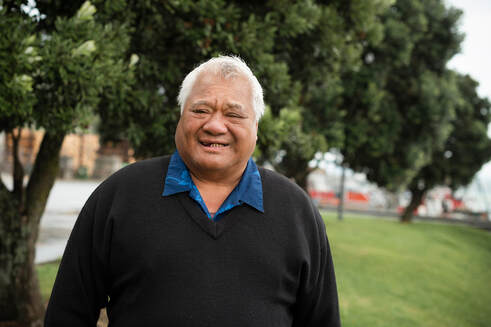 NORM Namana knows two things in life to be true: a man can change his own destiny, but no man can look after Norm’s shed. “It’s up to you to change your life yourself,” says the 72-year-old, who celebrated 20 years working at Turanga Health in June 2023. Norm, Ngāti Kahungunu, is Turanga Health’s lead in event resource and facilities maintenance. Central to that is his oversight of a meticulously organised storage shed filled with vital Turanga Health collateral. He has an eye for perfection, says Turanga Health chief executive Reweti Ropiha. “It’s one of his attributes. Everything in that shed is on shelves and there’s lists.” Norm’s shed is a lesson in indoor organisation. From tent pegs to tarpaulins, speakers to spare batteries, the resource shed is regulated and well run. As a result, there’s nothing that the sheriff of the shed hates more than someone meddling with his systems. “When I’m not here people come and help themselves and they don’t bring things back. If they do return things, they don’t put it back in the right place.” Norm’s life hasn’t always been this well ordered. His childhood in Wairarapa was fraught with instability as he bounced between foster homes and care and protection residences. He experienced violence and a disconnection from culture and whakapapa. Later, as well as working in shearing gangs and freezing works, he transitioned into gang life in Wellington. But that was a lifetime ago, and from here onwards Norm’s story speaks to his resilience and redemption. In the early 90’s Norm got into a car and drove to Gisborne to get away from it all. With Wairarapa and Wellington in his rear-view mirror, he unshackled himself from his past. “As I was driving up, I pushed it all behind me. I decided I wasn’t carrying it with me.” Norm strongly believes that any man can determine his own destiny. He made that car trip to better his life and to ensure his children didn’t grow up like he did. “It’s up to you to change yourself.” In Gisborne, Norm was working in a poultry processing factory lopping heads and feet off chickens when a friend took him to the Men’s Health Programme at a fledgling Turanga Health. He loved working out at the gym and not long after Norm asked Reweti for a job. “I was quite rapt when he said I could start here. My first job was helping with farm work at Whareongaonga.” He still remembers the delight of staff when he revealed that he could shear sheep. Reweti says in the early days Norm was a perfect fit to help with the Men’s Health Programme. “I saw that he was someone who could connect with tāne so we rolled the dice and gave him an opportunity.” These days, as well as managing and maintaining resources, Norm helps stand up infrastructure for Kaumātua Days and other whānau health events hosted by Turanga Health. He knows the best layout for every marae and prefers getting ready the day before. He also mows lawns. Hundreds of kilometres of lawns. Even at the weekend, Norm will be somewhere on his “Cadillac” mowing grass. Reweti reckons Norm is one of those men that talks through his actions and not through his words. “He has a heart of gold and if you needed the singlet off his back, he’d give it to you.” Norm is father to seven children, grandfather to 11, and great-grandfather to two. He loves nothing more than a meal of pork chops, fried onions, and cabbage, and can sometimes be found fishing or watching rugby league. Over the past few years, he’s grown more interested in his whakapapa and discovered that his grandmother was from the East Coast and other whānau hail from Mahia. “I didn’t know anything about my iwi until I got here. I’m still looking into it and working on it.” Norm hopes to be at Turanga Health for a few more years but is already scoping out his resource shed successor. He reckons there’s three younger Turanga Health tāne he could trust with his keys - but he isn’t revealing who just yet! 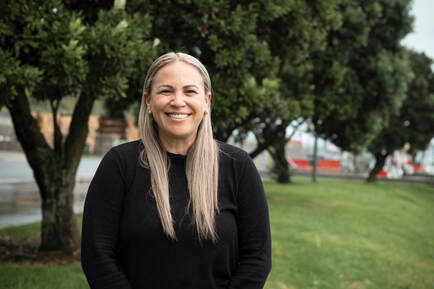 Ko Hikurangi te maunga Ko Waiapu te awa Ko Maraehara te takiwa Ko Te Whanau a Karuwai te hapu Ko Karuwai te marae Ko Ngāti Porou te iwi WHEN new Turanga Health kaimahi Hadyn Pomana learned there weren’t enough Māori psychologists in Aotearoa, she decided to become one. “Only five percent of psychologists registered in Aotearoa are Māori, yet we figure highly for mental health statistics and suicide rates.” The inequity annoyed the Ngāti Porou wahine. So, she researched a career in psychology, and the nearly eight-year course to become a doctor didn’t put her off. “This is all about the needs of my people,” says Ms Pomana, who has now earned a Bachelor of Applied Science (psychology). Ms Pomana, 45, has more postgraduate study to complete, as well as 18 months of clinical practice before she can apply for a job as a psychologist. Right now, she is in the process of earning professional registration with the Drug and Alcohol Practitioners Association Aotearoa New Zealand, so her addiction practice is endorsed. “More needs to be done to improve mental health outcomes for Māori and this is my way of doing that.” While studying, Ms Pomana has worked in roles that complement her passion for supporting iwi. Over the past ten years she has worked at Te Kura O Te Muriwai and Community Clinic, Tairāwhiti. Then, this year, Ms Pomana joined Turanga Health as a Community Action Youth Alcohol and Drugs kaiāwhina. Ms Pomana says she has always admired the work of the iwi health provider having worked alongside Turanga Health kaimahi in educational settings. “I know Turanga Health offers practical solutions to issues that our people face. I have seen it and I wanted to be part of it.” Ms Pomana and her husband Caine Pomana are kaitiaki on iwi land at Whareongaonga and as a result, have observed a lot of the work Turanga Health does with the Muriwai and Manutuke communities. “My whānau here and in Muriwai are better off because of Turanga Health.” In her work as a CAYAD kaiāwhina Ms Pomana and her colleague Waldo Horomia, recently contributed to the review of the Supply and Sale of Alcohol (Community Participation) Amendment Bill. They are also responding to the alarming rise in child vaping. Once again, it’s the statistics that have helped propel Ms Pomana to focus on this kaupapa. The Tairāwhiti region is saturated with 29 vape shops - the country’s most per capita. On Gladstone Rd alone there are eight, and there are three in Elgin. “It’s horrible for this region to be leading those statistics,” says Ms Pomana. “I like numbers and those numbers tell us a story about what’s happening. I want to see if we can affect change.” When she’s not at work, Ms Pomana is heavily involved in the martial arts Muay Thai. She instructs athletes in the ancient combat sport in te reo Māori at Rangataua o Aotearoa. Two out of three of her children have competed at an international level and later this year she will accompany her teenage daughter to Turkey in her bid to win back her age group title. Life’s busy but Ms Pomana wouldn’t change a thing. “I’m a nerd at heart and I have a passion to give back to our communities, particularly to rangatahi. For me, it’s about where can I fit into that at a practical level, and right now I have found the places where I can do that.” 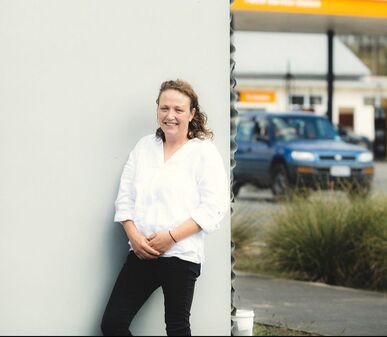 TURANGA Health medical staff and kaiāwhina stranded behind closed roads west of Gisborne in June continued to look after unwell whānau during the state of emergency. “On the ground decision-making is vital during these times and we had the right people in the right places to help whānau who were most unwell,” says the health organisation’s chief executive Reweti Ropiha. After a period of intense rain a state of emergency was declared in Tairāwhiti on Thursday 22 June. Flooding, slips, and dropouts closed dozens of rural roads as well as State Highway 2 west out of Gisborne. Te Karaka whānau were evacuated, Whatatutu residents were cut off, and Otoko Hill sustained major damage. A number of Turanga Health staff were trapped behind the damaged roads including primary care kaiwhakahaere Bobbie Cameron in Whatatutu, community coordinator Mary Fisher in Matawai, and Waikohu Health Centre nurse practitioner Kylie Morresey in Kanakanaia Rd. With support from other Turanga Health nurses and kaiāwhina they all continued to work. Heeding the early severe weather warnings, Waikohu Health Centre nurse practitioner Kylie Morresey and nurse Vinessa Taylor cleared the next day’s patient list with phone calls. Then they stocked their trucks with mobile nursing equipment including medication, inhalers, dressings, and oxygen and headed to their respective homes to wait out the storm. Once the rain hit, Whatatutu-based nurses Bobbie and Vinessa, and kaiāwhina Layton Noanoa and Leslie Puketapu, were part of an iwi welfare response hub based out of Mangatu Marae. The Turanga Health staff did door-to-door checks on Whatatutu locals. “We’d keep them up to date with the situation and see if they needed any support or medicine,” says Bobbie. Layton maintained a database with names of who had received support and fed the information to the civil defense team operating out of Te Karaka Area School. Practice nurse Vinessa was particularly concerned with a potential loss of power and the impact that would have on patients who rely on dialysis and oxygen machines. “They are the sickest people out here, but I know them well because I work at the Health Centre. Turanga Health is really responsive. It’s great.” Bobbie says the lessons learned from Cyclone Gabrielle in February, and a recent emergency planning exercise, meant Whatatutu was as prepared as it could be. “Everyone worked in really well.” Kylie was trapped in Kanakanaia Rd. As a nurse practitioner with some of the same authorisations as a doctor, Kylie can prescribe medicine. As Bobbie and Vinessa assessed patients they could ring Kylie who could then prescribe medicine over the phone. “Living in the community and being a prescriber when roads are closed is a huge benefit,” says Kylie. “People were still being treated even though they were isolated.” Further up broken State Highway 2, community coordinator Mary Fisher from Matawai, faced challenges opening a drop-in nurse clinic at Matawai Memorial Hall. Mary helped whānau who needed dressings and checkups and was a friendly face to anyone who was worried. But just getting to Matawai village was arduous. Mary’s husband used a tractor to punch through slips near her home. Then she had to walk one kilometre to a car she’d stashed further down the slushy road. “It’s just what we’ve got used to,” says Mary. Once out and about, Mary also visited vulnerable whānau in the area. “The whole thing had an element of de ja vu about it,” admits Reweti. “We took all our learnings from the previous emergencies. I’m proud of how our rural staff seamlessly mobilised into action. It’s a vital reminder of the value of Turanga Health’s depth of professionalism and geographic spread.” 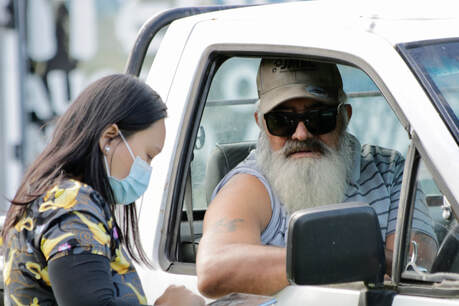 TURANGA Health administered nearly 10 percent of the country’s total Covid booster immunisations in four hours during one day in Patutahi in April. Community providers are leading the charge for immunisation, says Turanga Health chief executive Reweti Ropiha. “No appointments, no queues, close to home, and all with a friendly face.” Turanga Health has led the region in its winter preparedness by taking its vaccination drive-through events around the rohe since April. Whānau can get Covid-19, influenza, childhood, and hapū wahine vaccinations at the one-stop venues. They look and feel like the Covid-19 vaccination clinics of old because that’s what they’re modelled on, says Mr Ropiha. “This is a good alternative to the bricks and mortar style of immunisation which in these new times has been proven not to work.” On Sunday 30 April, outside Ngatapa Rugby and Associated Sports Club, Turanga Health staff administered 256 vaccines in four hours. Of those, 61 were adult or child Covid vaccinations, 164 were to prevent influenza, and 21 were childhood immunisations. Mr Ropiha says the community vaccination event was led by kaimahi that people know, in a place that people feel comfortable. It’s how Turanga Health delivers most of its vaccinations and it equates to higher vaccine uptake. “That day we were responsible for 9.6 percent of all boosters administered across Aotearoa that day. It shows us that drive-throughs are a familiar concept and attract more people.” The experience we offer fosters goodwill and participation which is vital right now as we see vaccination figures declining around Aotearoa, added Mr Ropiha. Childhood immunisation rates have fallen to critical levels, a recent Immunisation Taskforce report has found. The report says that at 6 months of age, just 45.9% of Māori were fully immunised compared with 72.8% for Pākehā. Worryingly, that immunisation rate for pēpi Māori has dropped down drastically from 80 percent in early 2020. The decline in childhood immunisation is now putting our tamariki at real risk of preventable diseases, says Mr Ropiha. Three babies have died from vaccine-preventable whooping cough this year. “The best way we can protect ourselves is to ensure māmā are vaccinated and pēpi get their first immunisations at 6 weeks, 3 months, and 5 months." By the end of April, Turanga Health had held 11 rural and town drive-through vaccination clinics (30 hours), 8 workplace clinics (16 hours), and 5 Turanga Health clinics (8 hours). In April 1,232 vaccinations were administered during the 30 hours of community clinics, equating to nearly 1.5 vaccinations a minute. “The one-location drive-throughs are an efficient, convenient, and safe way to vaccinate large groups of people in town or smaller groups in rural areas.” Figures show that Māori participation in Turanga Health’s community clinics was just over 50 percent, and just over 40 percent in the workplace settings. Mr Ropiha says male and female kaiāwhina trained vaccinators make a difference at the drive-throughs. Formerly the realm of nurses, Turanga Health was this country’s first iwi health provider to train kaiāwhina to vaccinate. The organisation now boasts 15 kaiāwhina vaccinators providing a range of immunisations. Ten of them are involved in training to be able to administer a vaccination they are not currently qualified for. Staff mostly work outside, and Cyclone Gabrielle didn’t dampen Turanga Health’s efforts to vaccinate. “Turanga Health continued its mahi straight after Cyclone Gabrielle and that continuity of care seamlessly moved into winter and childhood vaccinations.” At each vaccination event Turanga Health invites whānau feedback. Most people discover the drive-throughs through word of mouth, and they attend to improve their health or to support other whānau. Many say they come just to connect. In April whānau were asked to rate their satisfaction with Turanga Health’s vaccination events as a percentage. The Elgin vaccination day scored 84 percent, Manutuke 85, and Patutahi 98. “As an iwi health provider, we’ve been charged with taking a bigger role in strengthening kaupapa Māori services. Māori-led initiatives like this build the resilience of vulnerable Māori communities and help manage the impact of avoidable disease.” Mr Ropiha says drive-through vaccinations are here to stay and will undoubtedly lead to better outcomes for iwi health. One-location vaccine drive-through clinics are coming to a town or village near you. Visit www.turangahealth.co.nz to see where the next vaccination clinic is being held. |
Media Releases
Email us if you want to receive our media releases. Archives
February 2024
|

